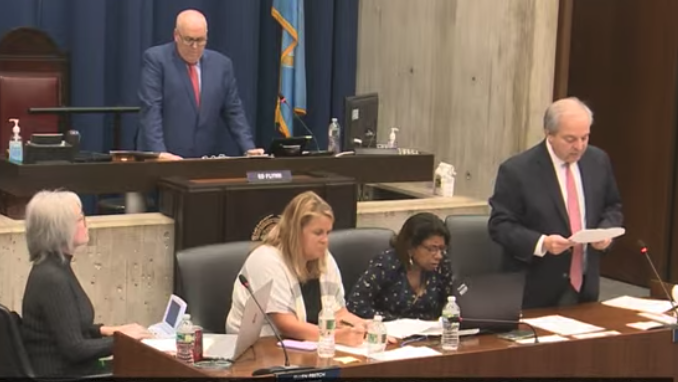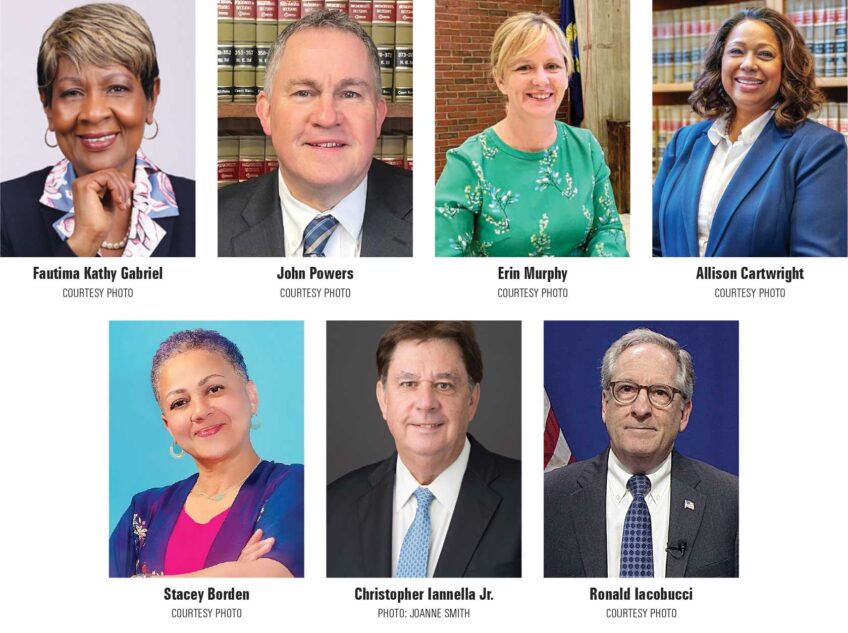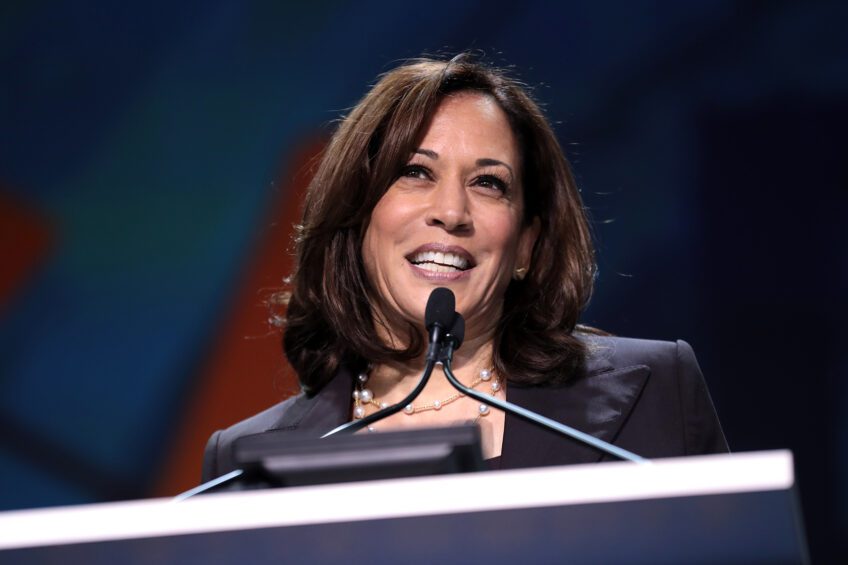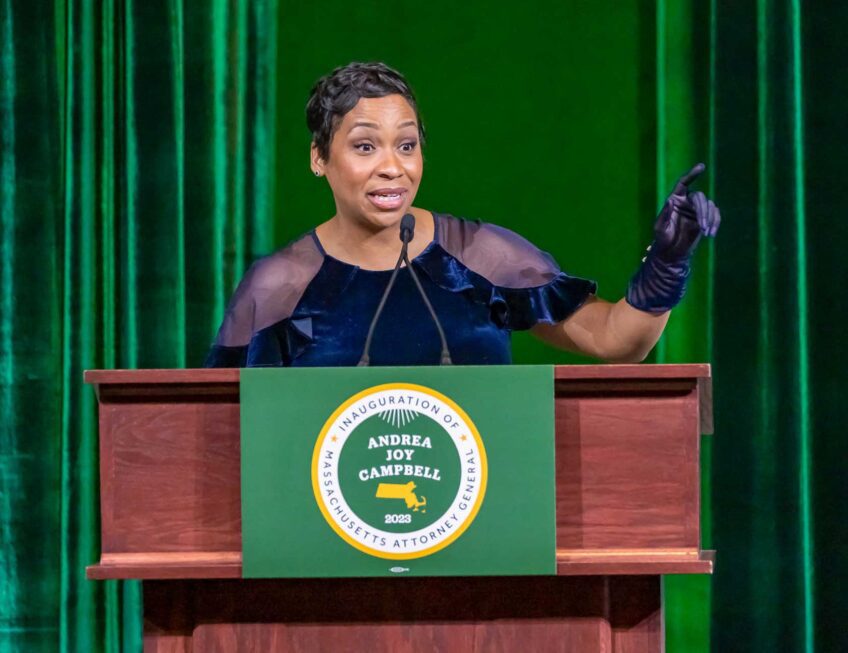Council passes ‘unity’ redistricting map
Baker, Flynn, Flaherty and Murphy cast 'no' votes

With several outbursts and more than an hour and a half spent in recess, city councilors voted on redistricting last Wednesday, passing newly drawn district lines based on the so-called unity map advanced by the NAACP, Mijente, Chinese Progressive Association and other groups representing communities of color.
The battle lines between the Black, Latino and white progressive councilors and the four Irish American members of the body remained intact as the body voted to pass the map, sponsored by Redistricting Committee Chair Liz Breadon and District 6 Councilor Ricardo Arroyo. Councilors Frank Baker, Michael Flaherty, Ed Flynn and Erin Murphy voted against the map, which evened out population differences between the nine districts primarily by taking some South Boston precincts from District 2 — represented by Flynn — and adding them to Baker’s District 3.
Mayor Michelle Wu signed the new map into law on Monday.
A particularly tense moment occurred during the Nov. 2 meeting when Baker, who throughout the process has urged his colleagues to respect the parish lines that Dorchester’s Roman Catholic residents observed in decades past, alleged that a priest told him clergy in Boston are viewing the redistricting process as “an assault on Catholic life in Boston.”
“And it’s not lost on them that the person that’s leading the charge is a Protestant from Fermanagh,” Baker said, calling out Breadon, who grew up in the north of Ireland during a time of increased conflict between Protestants backed by the British military and Catholics who lived there as a disenfranchised class.
Flynn immediately called a recess. After, Baker offered an apology, while pressing his case to protect parishes.
“I shouldn’t use language like that,” Baker said. “I’m heated. I’m heated because I think that neighborhoods that are in District 3 that happen to be Catholic are under attack.”
Baker’s district was one of two that were most out of compliance with the chief objective of redistricting: making sure districts are of roughly equal size to ensure that each resident’s vote is weighted the same. District 3, which stretches from the Neponset section of Dorchester to South Boston, needed to pick up more than 6,000 voters to reach parity with other districts. District 2, represented by Flynn, needed to drop more than 13,000 voters to reach parity.
Councilors also sought to add white residents to District 4, represented by Brian Worrell, to ensure that to ensure that Black and Latino voters are not too densely packed into a single district. The unity map proposed taking predominantly white precincts from Cedar Grove, Neponset and Adams Village to increase the white population in District 4 from 9.5% to 14.5%.
In the end, Baker, Flynn, Flaherty and Murphy stood firm against the changes in the face of a unified bloc in support. Speaking against the changes in South Boston, Flynn argued that moving the voting boundaries would split communities.
“Ward 6 should be unified,” he told his colleagues. “Ward 7 should be unified. We’re dividing them.”
Throughout the process, Flynn argued against removing precincts from the Dorchester and South End sides of District 2. Given the deficit of population in District 2, however, the coalition that put together the unity map opted to make changes on the Dorchester side.
The vote, which Breadon had planned to hold the week prior, came after a coalition of South Boston groups filed a complaint alleging that councilors violated open-meeting laws by meeting with civil rights groups around the unity map. However, councilors who attended meetings with the groups were not permitted to speak during the meetings or during a press conference the groups held, making it hard to argue they deliberated during those meetings.
At the Nov. 2 meeting, Murphy argued that constituencies that don’t speak English as a first language were excluded from meetings at which no translation was offered. At-large Councilor Julia Mejia countered that when she translated into Spanish during a meeting in South Boston, she was shouted down by angry white residents. Councilor Tania Fernandes Anderson, who spoke in Spanish, French, Portuguese and Kriolu during the meeting, said she offered translation services in a District 7 meeting but that nobody requested them.
Councilors similarly rejected a motion by Murphy calling for a new set of principles to guide the redistricting process. District 9 Councilor Kenzie Bok noted that councilors had already been presented with principles by Breadon during an Oct. 17 meeting but had declined to take up the matter.
“I just think that this effort to continually introduce very similar dockets with slight adjustments feels again to me … like a stall tactic rather than something that is really about the substance of the thing,” Bok said.
The redistricting process was fraught from the beginning. In late August, Flynn invoked his power as City Council president to remove Arroyo from his chairmanship of the committee for 60 days — the time period during which the council was set to take up and vote on maps. In the end, however, Arroyo and the majority on the council passed a map over Flynn’s objections.
“It’s easy for my colleagues to dismantle a community that you don’t know,” Flynn said. “I’m disappointed in the results today.”








